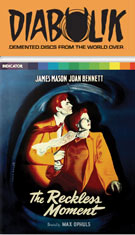
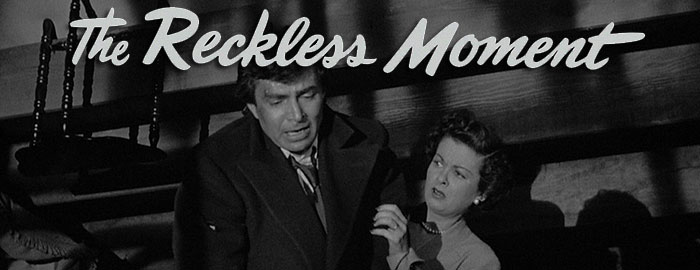
B&W, 1949, 82 mins. 3 sec.
Directed by Max Ophüls
Starring James Mason, Joan Bennett, Geraldine Brooks, Henry O'Neill, Shepperd Strudwick, Roy Roberts
Indicator (Blu-ray) (UK R0 HD), Second Sight (DVD) (UK R2 PAL), Carlotta (DVD) (France R2 PAL)
Legendary 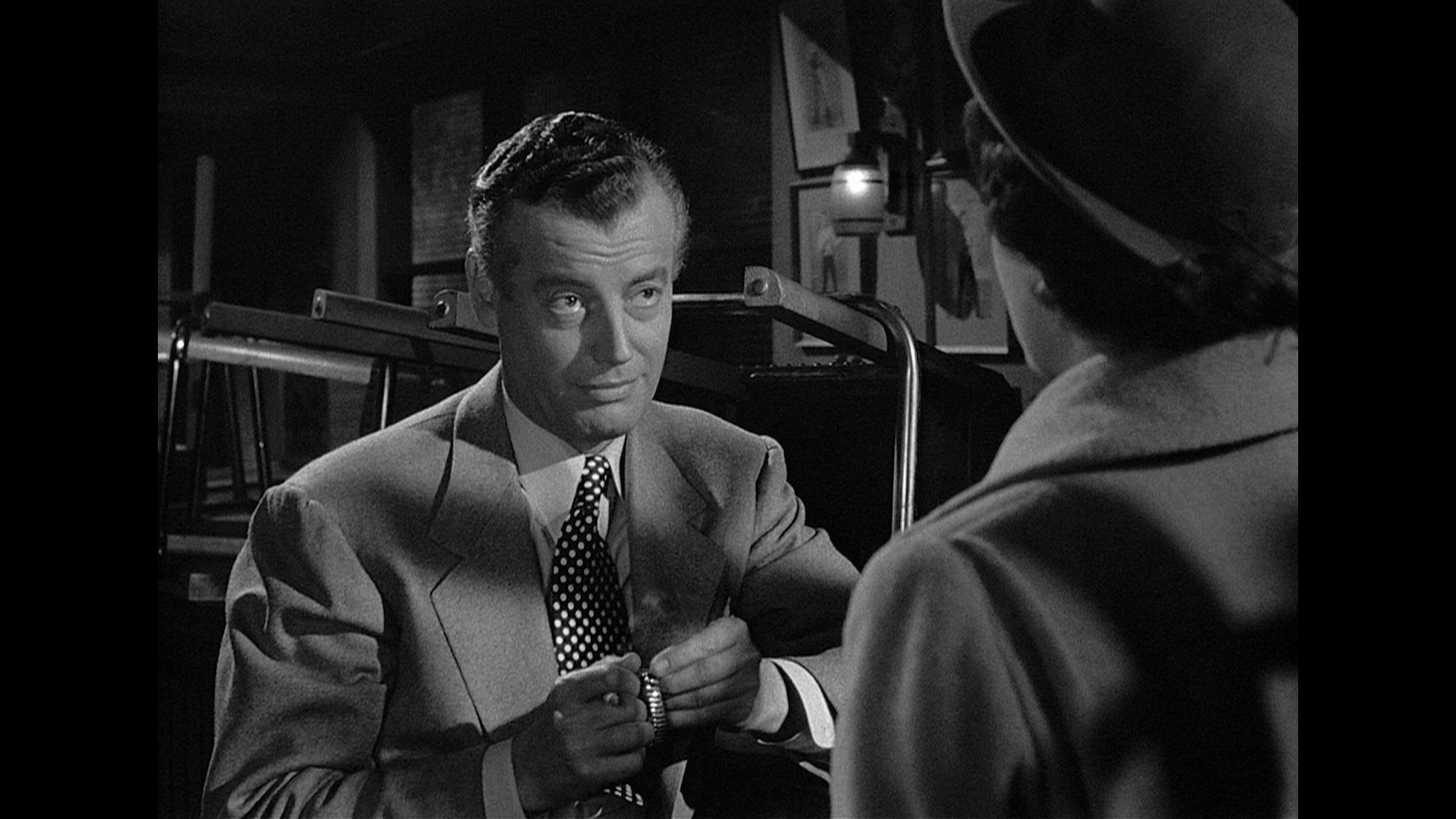 filmmaker Max Ophüls closed
filmmaker Max Ophüls closed 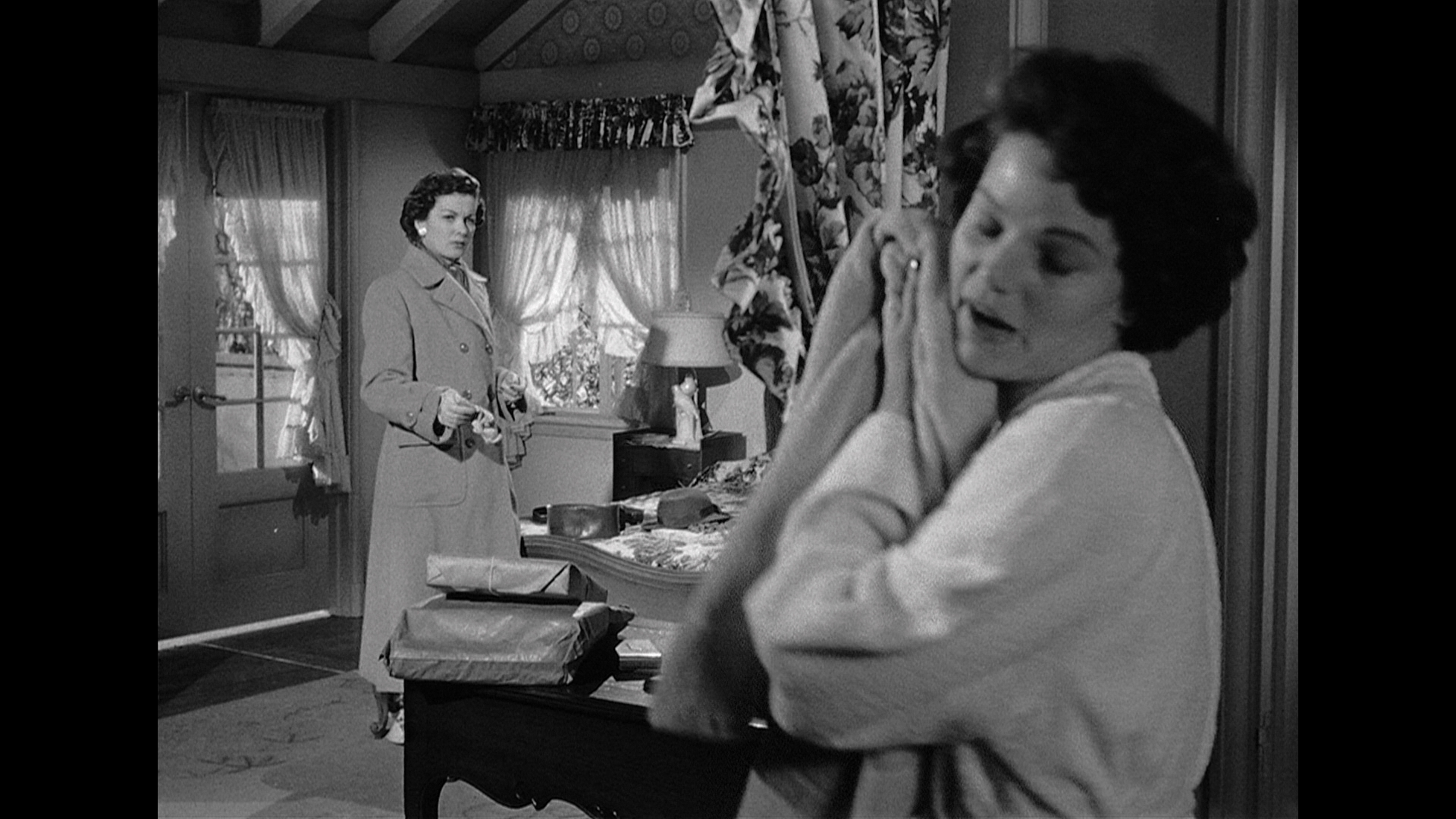 out his brief but impressive time in Hollywood with this, the second of two film noir titles starring James Mason (following Caught) and a fine vehicle for one of the most indelible leading ladies of the era's crime films, Joan Bennett (on the heels of Fritz Lang's Scarlet Street, The Woman in the Window, and Secret Beyond the Door), who was also the wife of producer Walter Wanger. Both a taut thriller and a brilliant showcase for Ophüls' trademark long, fluid camera takes, the film has remained strangely neglected and underseen in the U.S. but still stands as a fine summation of its director's work to that point before his career-defining masterpieces upon relocating to France.
out his brief but impressive time in Hollywood with this, the second of two film noir titles starring James Mason (following Caught) and a fine vehicle for one of the most indelible leading ladies of the era's crime films, Joan Bennett (on the heels of Fritz Lang's Scarlet Street, The Woman in the Window, and Secret Beyond the Door), who was also the wife of producer Walter Wanger. Both a taut thriller and a brilliant showcase for Ophüls' trademark long, fluid camera takes, the film has remained strangely neglected and underseen in the U.S. but still stands as a fine summation of its director's work to that point before his career-defining masterpieces upon relocating to France.
Just before Christmas in a community outside L.A., Lucia Harper (Bennett) drives into the city to confront the slimy Ted Darby (Strudwick), who's been romantically involved with Lucia's naive daughter, art school student Bea (Brooks). When he demands money to call off the relationship, Lucia thinks she has the upper hand until she gets home to find the relationship with her daughter more frayed and tense than ever. On top of that, Lucia's husband has to be out of town past Christmas in Berlin, leaving her to tend to the family alone. Later that same night, 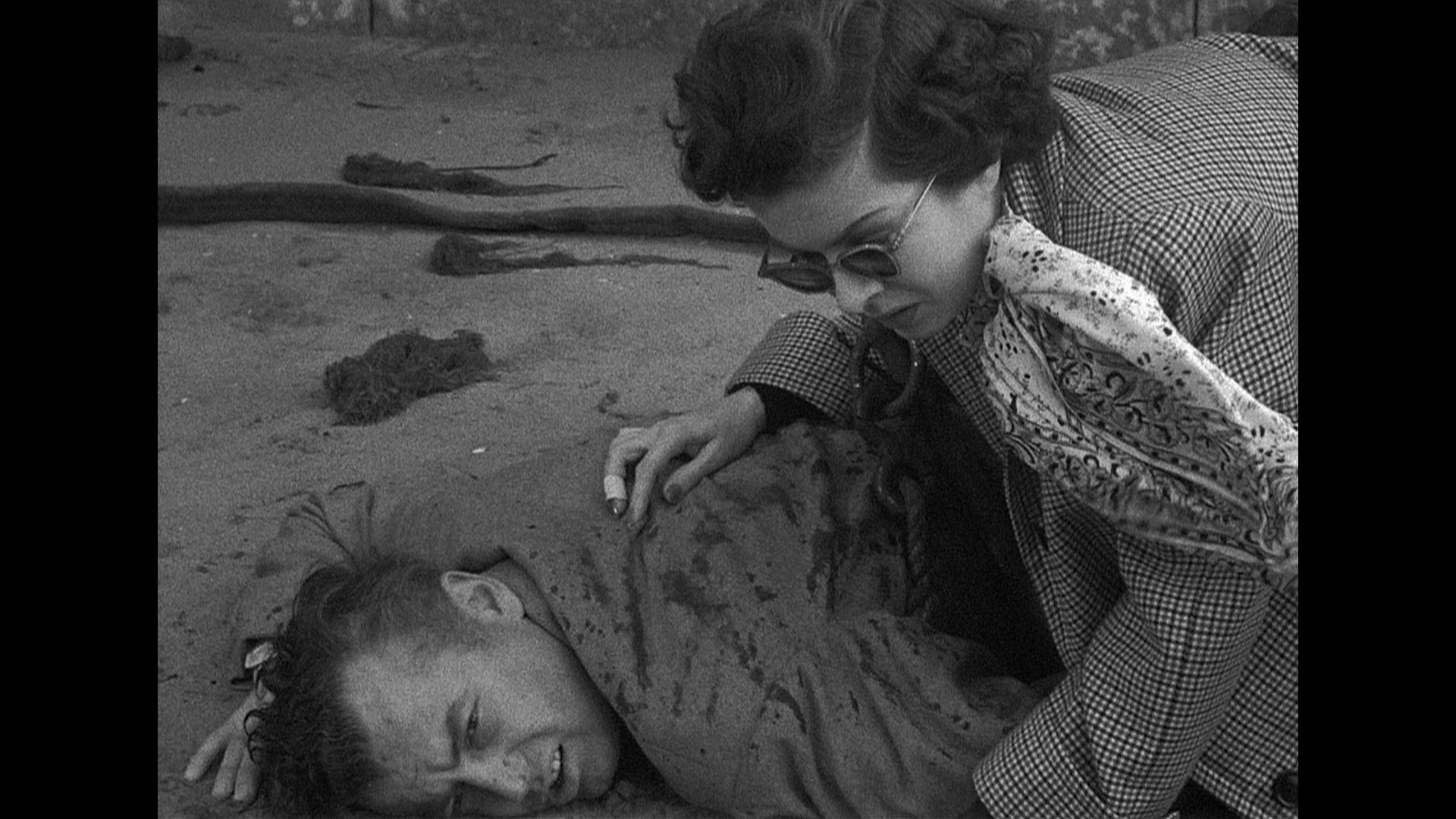 Bea sneaks out to the family boat house to meet Ted, who reveals his true intentions and causes her to hit him across the head. While stumbling after her, he
Bea sneaks out to the family boat house to meet Ted, who reveals his true intentions and causes her to hit him across the head. While stumbling after her, he  falls through a wooden railing and onto an anchor in the dark. The following morning after consoling a distraught Bea, Lucia finds the body and, believing it to be intentional murder, tries to cover up the crime by disposing of Ted in the middle of the lake. Of course, that's just the beginning of her problems when the body turns up almost immediately and the shady Martin Donnelly (Mason) shows up demanding blackmail money on the behalf of his dangerous boss, Nagel (Roberts), for a series of potentially incriminating letters Bea wrote. Scrambling to raise the cash and avoid suspicion, Lucia ends up forming an unlikely bond with Martin as they both try to find a different solution.
falls through a wooden railing and onto an anchor in the dark. The following morning after consoling a distraught Bea, Lucia finds the body and, believing it to be intentional murder, tries to cover up the crime by disposing of Ted in the middle of the lake. Of course, that's just the beginning of her problems when the body turns up almost immediately and the shady Martin Donnelly (Mason) shows up demanding blackmail money on the behalf of his dangerous boss, Nagel (Roberts), for a series of potentially incriminating letters Bea wrote. Scrambling to raise the cash and avoid suspicion, Lucia ends up forming an unlikely bond with Martin as they both try to find a different solution.
One of the strongest examples of post-WWII suburban noir, The Reckless Moment is an adaptation of the novel The Blank Wall by Elisabeth Sanxay Holding, later remade in 2001 with a gay twist as The Deep End starring Tilda Swinton. With a very limited number of characters, the film manages to pack a huge amount of character development and suspense into its tight running time with Bennett serving as the linchpin from start to finish. Apart from some strange jump cuts early on (perhaps due to dialogue trims to quicken the pace), it's also a technical marvel with the camera gliding up, down, and through staircases and hallways to convey an atmosphere of rising emotional distress. For some reason the film has never had a legitimate U.S. home video release (though some really shoddy bootleg VHS copies made the rounds), but it has gotten a handful of DVD editions in Europe including the U.K. and France.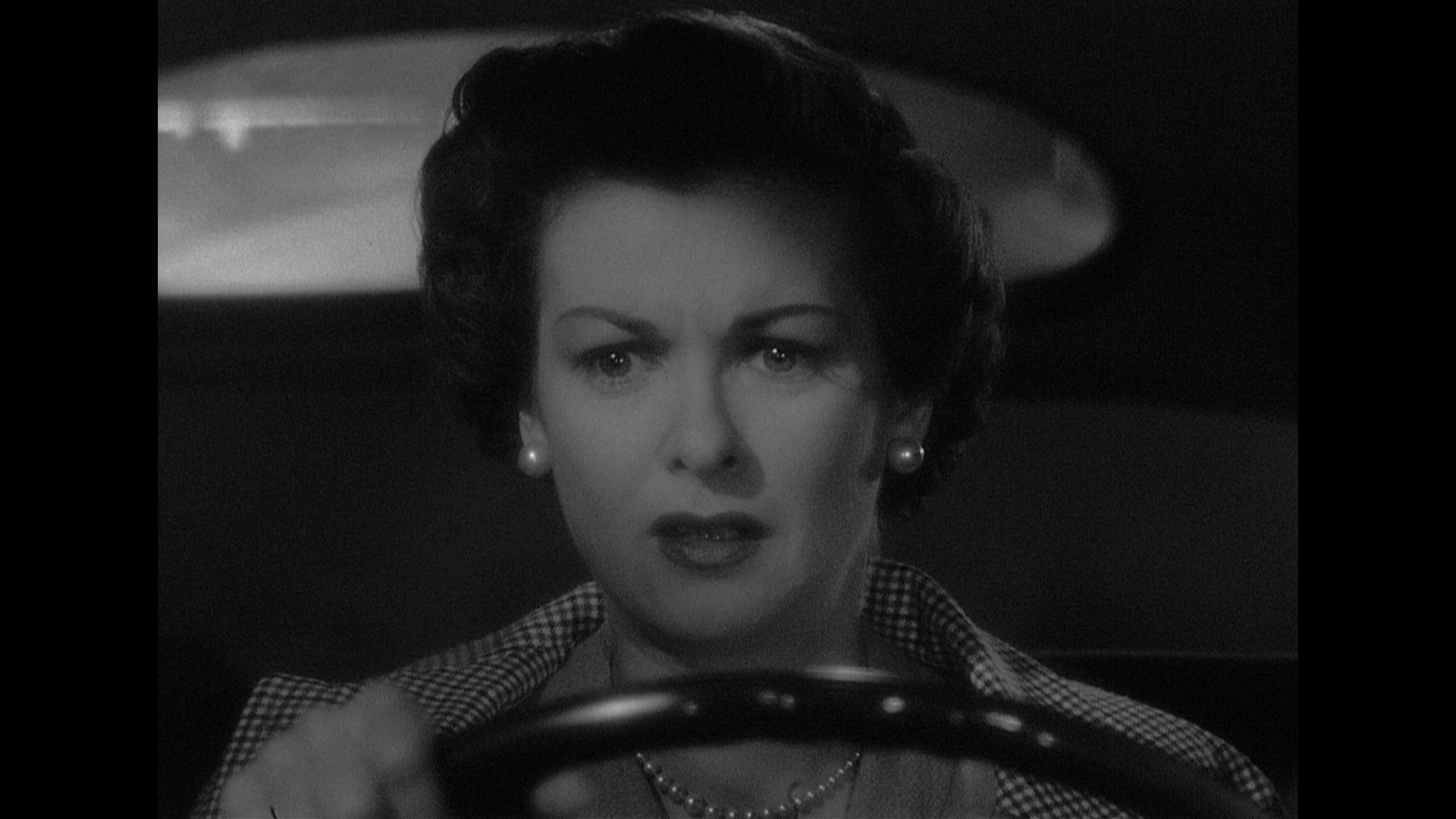

The 2019 Blu-ray edition from Indicator (limited to 3,000 units) finally gives the film its due with a sparkling HD transfer supplied by Sony, up to the studio's usual immaculate standards and a real treat for the senses throughout. The LPCM English mono audio is also in excellent shape and comes with optional English SDH subtitles as well as an isolated music and effects track. Ported over from the French DVD release is Robert Fischer's 2010 featurette "Making an American Movie" (44m4s), Luiz Bacher (author of Max Ophüls in the Hollywood Studios) examines how Ophüls' recent box office failures hadn't affected his growing artistic reputation, which allowed his more artistic, time-consuming tendencies accommodating by his American crew. Also carried over is "Maternal Overdrive" (22m58s) with director Todd Haynes diving into his love of the film via Bennett's challenges as a mother and the traps she and Martin try to wriggle out of in terms of the plot and their own emotions. Then Mason becomes the primary focus for three new video additions: "James Mason as Homme Fatal" (26m23s), a spoken stage presentation by Adrian Garvey at Birbeck, University of London about Mason's unusual presence in noir as a conflicted "villain" figure; an audience discussion from the same "Focus on James Mason' event (39m21s) with Garvey and Sarah Thomas going further into the ambiguity of the film's central relationship, the connections to other female-centric noirs, and viewers' thoughts about the leading man and his indelible screen presence (with an unfortunate technical snafu on the screen behind them for the second half); and "James Mason: Watching the Violence Unfold" (32m34s) with Thomas looking at Mason's later career (including The Deadly Affair and Gente di respetto) borne of his function as a sort of connection between melodrama and noir. A gallery of promotional and production material is also included, while the limited edition comes with a 36-page booklet featuring a new essay by Samm Deighan, an intro to Ophüls by Andrew Sarris, and archival reviews and article profiles of the director.
Reviewed on April 6, 2019.




 filmmaker Max Ophüls closed
filmmaker Max Ophüls closed  out his brief but impressive time in Hollywood with this, the second of two film noir titles starring James Mason (following Caught) and a fine vehicle for one of the most indelible leading ladies of the era's crime films, Joan Bennett (on the heels of Fritz Lang's Scarlet Street, The Woman in the Window, and Secret Beyond the Door), who was also the wife of producer Walter Wanger. Both a taut thriller and a brilliant showcase for Ophüls' trademark long, fluid camera takes, the film has remained strangely neglected and underseen in the U.S. but still stands as a fine summation of its director's work to that point before his career-defining masterpieces upon relocating to France.
out his brief but impressive time in Hollywood with this, the second of two film noir titles starring James Mason (following Caught) and a fine vehicle for one of the most indelible leading ladies of the era's crime films, Joan Bennett (on the heels of Fritz Lang's Scarlet Street, The Woman in the Window, and Secret Beyond the Door), who was also the wife of producer Walter Wanger. Both a taut thriller and a brilliant showcase for Ophüls' trademark long, fluid camera takes, the film has remained strangely neglected and underseen in the U.S. but still stands as a fine summation of its director's work to that point before his career-defining masterpieces upon relocating to France.  Bea sneaks out to the family boat house to meet Ted, who reveals his true intentions and causes her to hit him across the head. While stumbling after her, he
Bea sneaks out to the family boat house to meet Ted, who reveals his true intentions and causes her to hit him across the head. While stumbling after her, he  falls through a wooden railing and onto an anchor in the dark. The following morning after consoling a distraught Bea, Lucia finds the body and, believing it to be intentional murder, tries to cover up the crime by disposing of Ted in the middle of the lake. Of course, that's just the beginning of her problems when the body turns up almost immediately and the shady Martin Donnelly (Mason) shows up demanding blackmail money on the behalf of his dangerous boss, Nagel (Roberts), for a series of potentially incriminating letters Bea wrote. Scrambling to raise the cash and avoid suspicion, Lucia ends up forming an unlikely bond with Martin as they both try to find a different solution.
falls through a wooden railing and onto an anchor in the dark. The following morning after consoling a distraught Bea, Lucia finds the body and, believing it to be intentional murder, tries to cover up the crime by disposing of Ted in the middle of the lake. Of course, that's just the beginning of her problems when the body turns up almost immediately and the shady Martin Donnelly (Mason) shows up demanding blackmail money on the behalf of his dangerous boss, Nagel (Roberts), for a series of potentially incriminating letters Bea wrote. Scrambling to raise the cash and avoid suspicion, Lucia ends up forming an unlikely bond with Martin as they both try to find a different solution. 

![]()